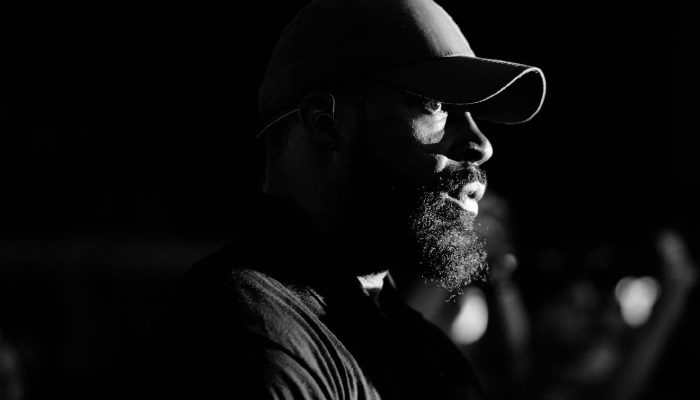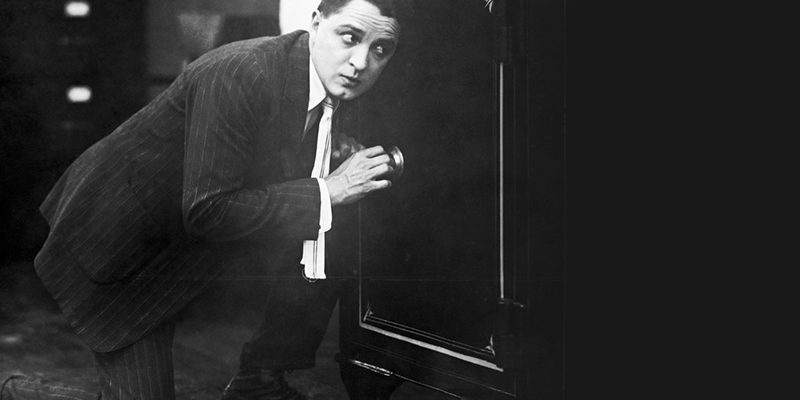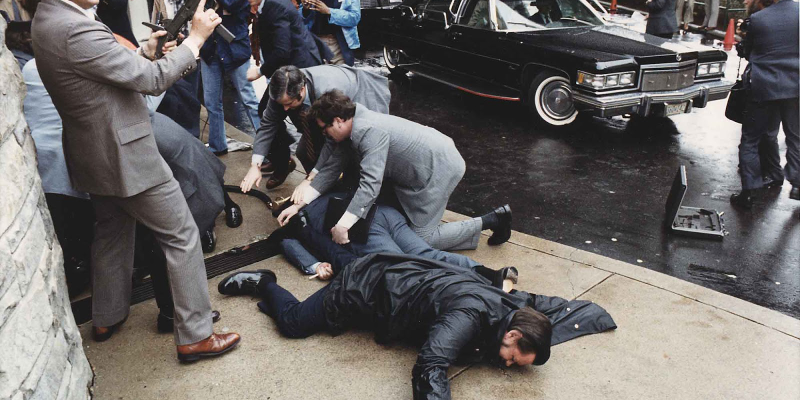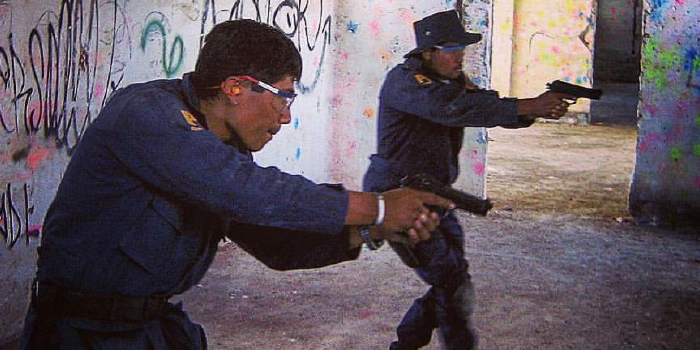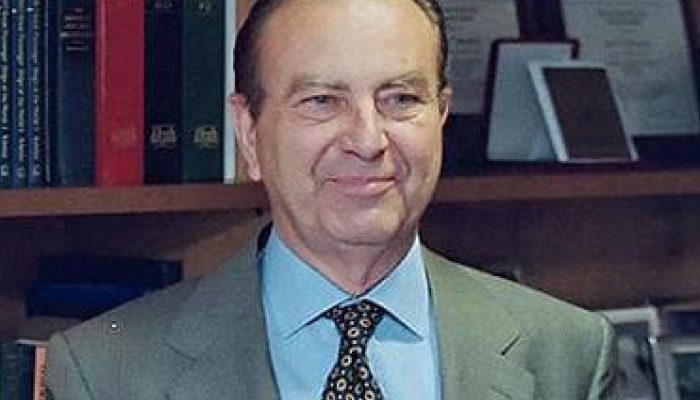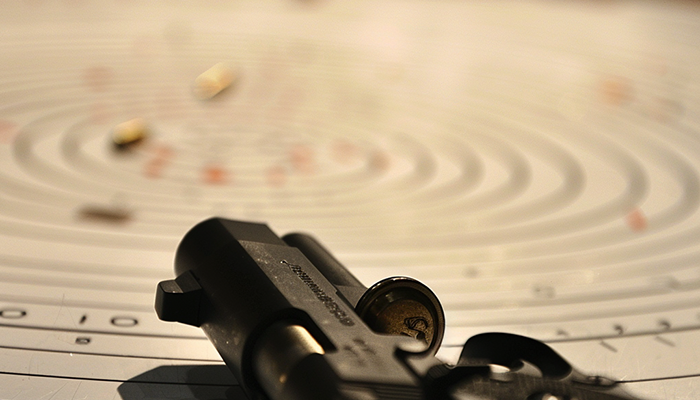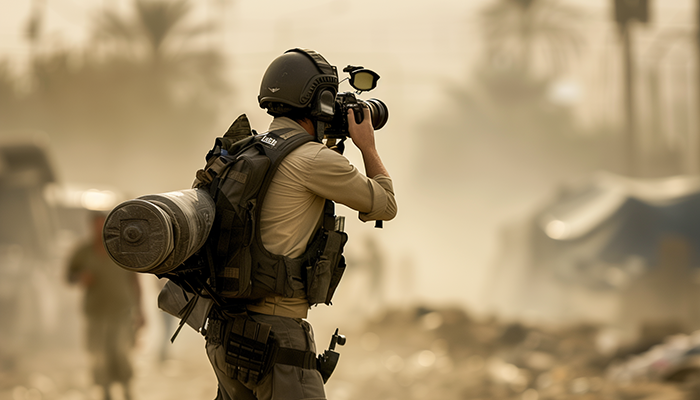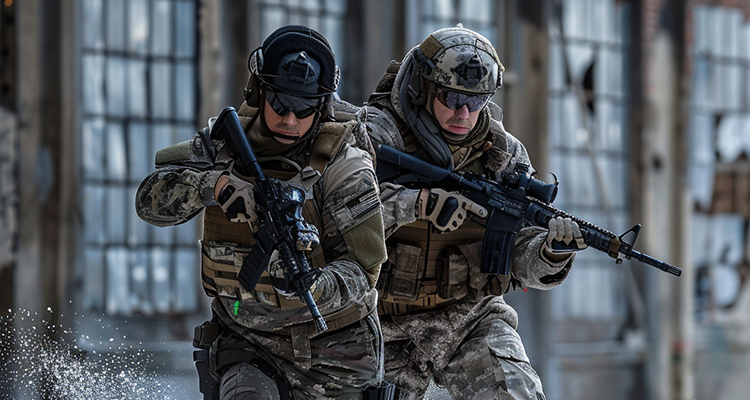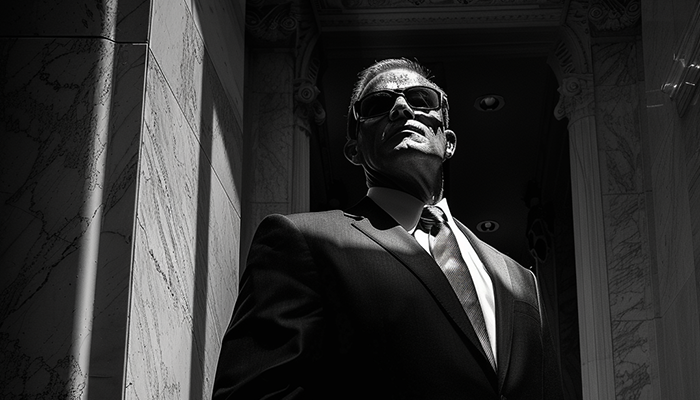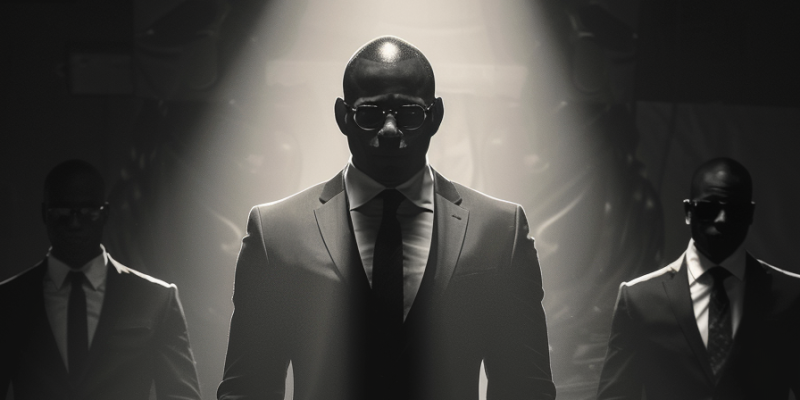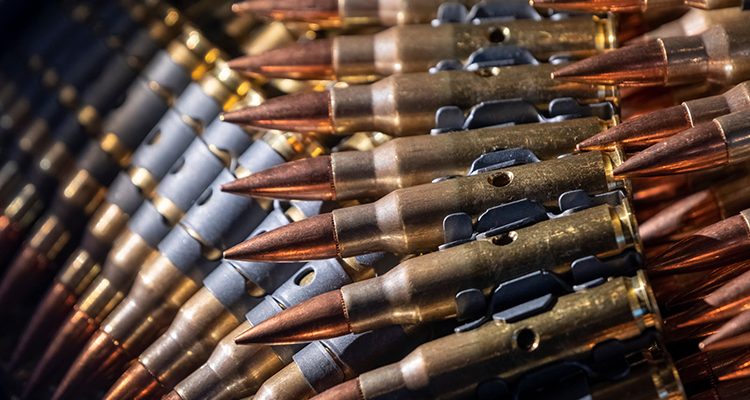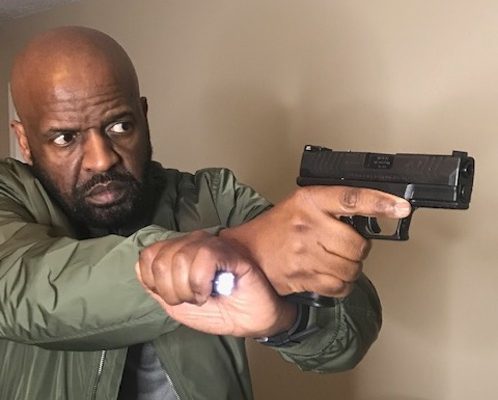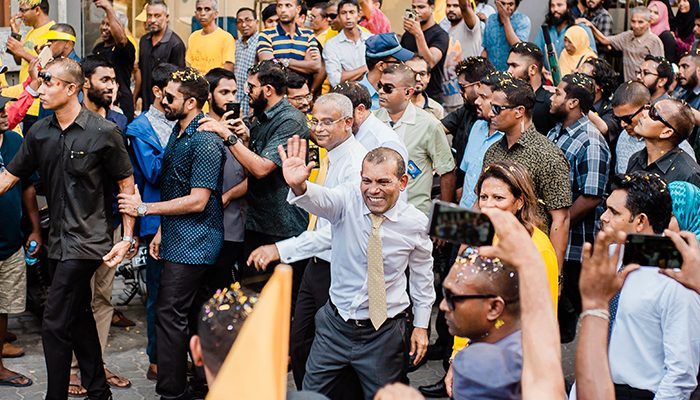This is not so much by the overt actions we take in close proximity to the Protectee, but by the intentional maneuvering of chess pieces behind the scenes, in the form of risk analysis, advance-work and logistics. With the exception of very high profile, or high threat assignments, our default state could be described in many cases as, invisible. This mindset has successfully shepherded many throughout the profession, being passed on from generation to generation to the benifit of the craft.
The Anatomy of a Bank Robbery
Even as banks deal with the fallout of the pandemic, bank robberies on the whole since Covid-19 are actually down. And while banks have always denied access to people wearing masks, the challenge posed by mask wearing during the pandemic has invited a greater security risk to banks, according to Paul Benda, Senior Vice President for Risk and Cybersecurity Policy at the American Bankers Association.
The Threat Posed by Fixated Individuals
The woman, who claimed she was engaged to Prince Andrew managed to persuade the security officers at the Royal Lodge to pay for her taxi fare. She then spent 20 minutes wandering around the Royal gardens before entering the home of Prince Andrew, Duke of York, where she was finally detained, and subsequently sectioned under the Mental Health Act.
OSINT ON-THE-GO
We live in a fast-moving world. Technology is evolving faster than we are. Is all the technology around us causing us to think that time is ticking faster?
Time does indeed seem to have become more precious nowadays. And many people often do say, “I can’t find the time to do it, the days are just passing too fast.”
But think back to not so long ago, especially us “oldies” on the circuit…
Dry Fire Training
In most other places outside the U.S. where firearm ownership and defensive carry is available for private citizens and security personnel, the price of guns and ammunition can be very costly, and the application processes to own and carry guns can be a bureaucratic nightmare.
In many places, it’s mandatory to belong to a gun club or shooting association who are the ones that have control of the shooting ranges. Personally, I have little time for clubs and associations as they tend to be very cliquey and attract people trying to compensate for a lack in other areas.
Conspiracy Theories Can Increase the Risk of Targeted Violence
A social climate of uncertainty provides fertile ground for conspiracy theories. Pandemics, for example, are predictably unpredictable—no one can say with certainty when one might begin, when it would end, or how long it might last. Combined with political and economic instability, a public health crisis like COVID-19 is rocket fuel for conspiracies. Under conditions of uncertainty, any information, even rumors, that helps direct negative emotions toward a specific target is psychologically comforting—it helps people manage their fear and anxiety. What if that target is your principal, a powerful business person, political figure, celebrity or high-wealth individual, who unwittingly becomes a central figure in an elaborate conspiracy theory due to their publically-known views, financial activities or associations?
Establishing Your Career Path in Close Protection
Now, to make it clear the commercial close protection industry is a very difficult industry for most people to enter, mainly due to the fact it is a very small and clique world where doors usually open for people if they know the right people. So, to start with, networking is a valuable key to opening the doors.
My personal experience and opinions comes from working over 30 years’ within the security, close protection and risk management industry in various Central/East/West African countries, Europe and Asia in operational and management positions.
Challenges of Protecting Children
As a bodyguard, I have been fortunate to have protected a variety of female principals amongst a cross-section of nationalities and cultures around the globe. My principals’ ages have also ranged from 4 to 65 years old. Amongst them all, I personally believe the most challenging principals are children. For me, the role of a bodyguard caring for a minor is all about balance, judgment, adaptation and a crystal-clear understanding of the parents’ wishes.
The Kidnapping of a Greek Tycoon
In this second installment, we pick up where we left off… The Principle, Pericles Panagopoulos, a Greek shipping tycoon and his CPO, George Sardelis, have been sandwiched in residential roadway by two vehicles and ambushed by gun-wielding kidnappers. They smashed in the driver’s side window and have forcibly dragged them out of their vehicle and driven them to a distant, remote location near a field. We pick up here with the rest of this harrowing tale…
Executive Protection in the Middle East
Good EP professionals understand the importance of thorough preparation and research before even accepting a task. This is arguably even more relevant when it comes to working in the Middle East where culture is king, and misunderstandings have the potential to ruin operations and future business partnerships. To add a layer of nuance and complexity, each Middle Eastern city – be it Dubai, Cairo, or Riyadh – calls for a slightly different approach, making things that much more interesting.
SHOOTING RANGE CONSIDERATIONS FOR YOUR NEXT TRAINING COURSE
My conclusion from 30 years in this space is that firearms are safe if handled properly. And gun ranges are safe if managed properly. Whether you’re shooting a .22 air rifle in your back garden or a light anti-armor weapon on a military range, as long as the basic principles of firearms/weapons safety and range management are followed, you shouldn’t have any problems.
In light of that, my aim with this article is to give you some foundational points you need to consider to run a safe shooting range and shooting events. And if you are attending a training course, this will give you the knowledge and key insights into proper course setup.
Journalist Safety Practice in Hostile Environments
I knew two of the course attendees quite well, even though we hadn’t met in person until that point. The Weinert Brothers—Dennis and Patrick Weinert—are German independent filmmakers, photographers, and authors based in Ho Chi Minh City, Vietnam. Doing my research months in advance of the course, I’d perused their work, watched their films and documentaries, and read their books and articles. As they would discover, research and planning would be something the brothers would be introduced to quite quickly. It was, in essence, the missing link that neither one of them had spotted but was the very thing they were searching for without really knowing it.
Importance of Continued Combatives Training
Within the industry, it’s been long debated whether or not martial arts training is essential to an agent. And if so, what style? In my opinion, the short answer is, of course, it’s essential. In this industry, we voluntarily take on responsibility for someone else’s defense. This implies that we should have an adept ability to protect ourselves proficiently.
Longevity in Executive Protection
As a newcomer to the industry, I had huge eyes when it came to EP. Everything was exciting and new. Nothing seemed to matter but trying to get seen by agency owners and progressing along—all in the hopes of one day being among the best in the business.
I wanted to challenge myself. I wanted to protect people that had important or extraordinary lives while being recognized as a professional. So off I went like a herd of turtles (things are slow at first). I had no clue what I wanted to obtain but knew that it was going to be what I made of it. All I needed was an opportunity.
Formations, Body Cover, & Professional Distance
The key words to remember when escorting a client on foot are flexibility and adaptability. You must be flexible enough to constantly adapt your formations to the environment you are working in, the threat level, and the manpower available. Whatever formation you are using will only be as good as the people you are using in your team. You must select your team carefully. Vet all potential members of your team before you employ them, even if you have known them for a while. Many people can talk the business, but when they get on operations, they are useless. When time allows, conduct rehearsals of all your team drills so in the event of an emergency, everyone knows what to do and what everyone else is doing.
Memorial day, we need it more now, and we need to talk about it.
As the world comes to grips with the effects of COVID-19, it has changing how we live and work in ways we would not have thought possible even months ago. Today’s new normal for businesses includes work-from-home difficulties, many simultaneously sick workers, disrupted supply chains, cash crunches, uncertain compliance obligations, and the mechanics of applying for new government programs. But that gives us time to reflect on other important matters, Memorial Day and the value we should instil.
Tactical Firearms Training – The Basics
Now, to get things straight to start with, what most people, especially Americans, don’t realize is that most non-government close protection jobs are unarmed due to the legal restrictions on firearms in most countries. Part of your threat assessment for any assignment needs to include the laws on the use of force and what if any weapons are legal in the locations you are going to be working in. Being caught with an illegal weapon, especially a firearm will get you thrown in jail very quickly, no matter how important you think you are!
Dealing with What Goes Bump in the Night
Often when one sense is taken away, the other senses become heightened. Allow those senses to work for you as you plan your search or exit. For instance, use your sense of smell to help detect a potential threat or adversary (body odor, cologne or perfume, smoke cigarette or tobacco) or any smells uncommon to your environment. Allow your movements to be slow and methodical unless executing a rapid/dynamic entry or exit maneuver. Be conscious of noise to help you locate a threat or potential adversary.
Why Consider A Career in Executive Protection?
It requires a lot of training and specialized skills. It can be a thankless job when things go well and a firestorm when there is a breach in the protection. And if nothing dangerous is afoot, it can get somewhat boring. It’s physically taxing and mentally grueling. So why do it? Once you get past your misconceptions about the industry and learn what you are really getting into, you’ll find that it is a great career full of incentives.
Weaponising Social Media
The psychology behind the misinformation was mostly covered last time, so we’re going to look more at the mechanics that enable them. We’ll take a look at fake social media accounts, botnets, and automated amplification to exploit social media algorithms.
